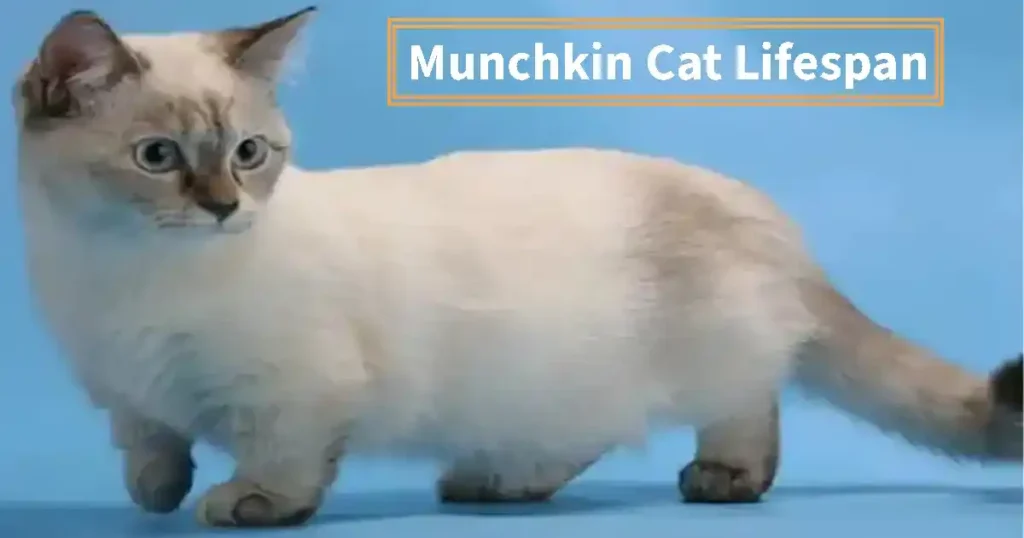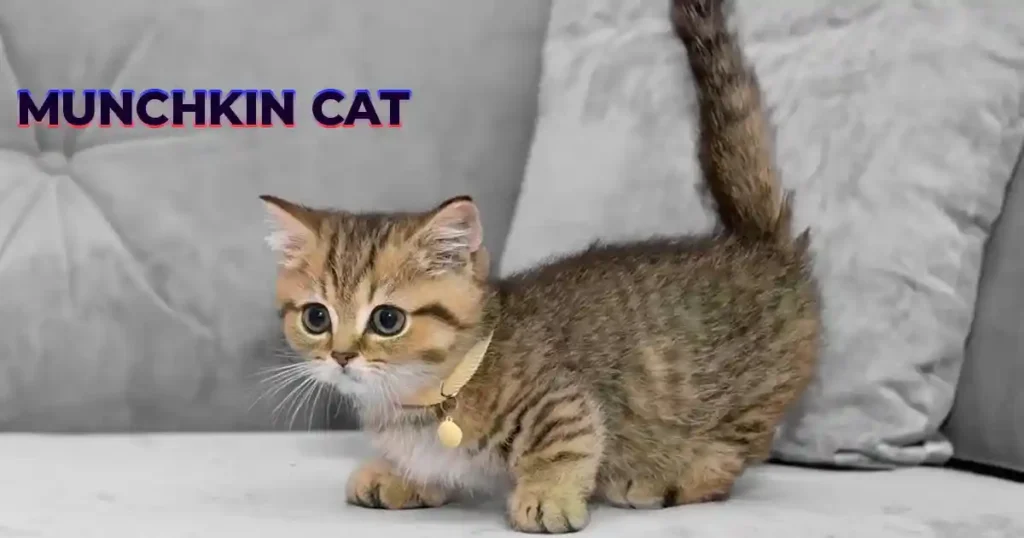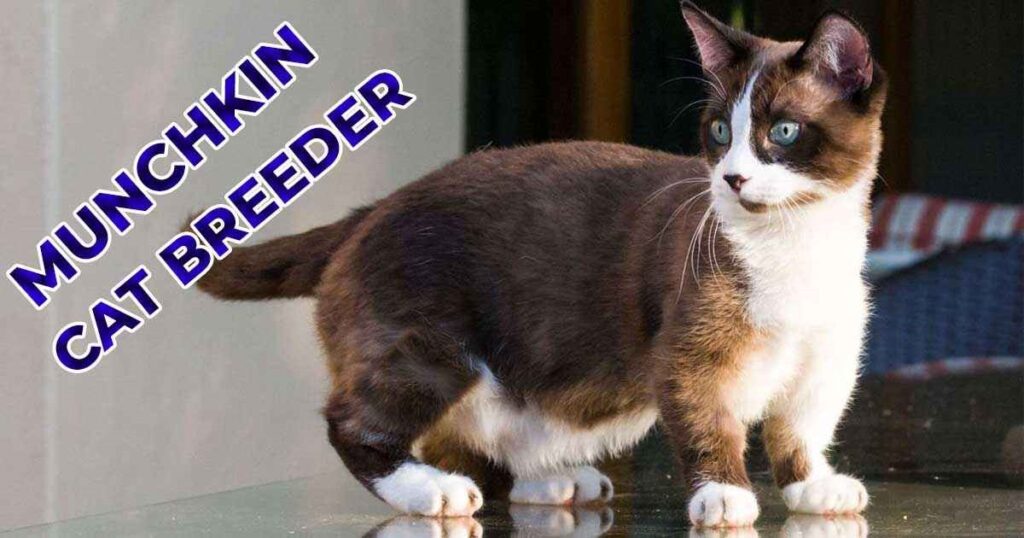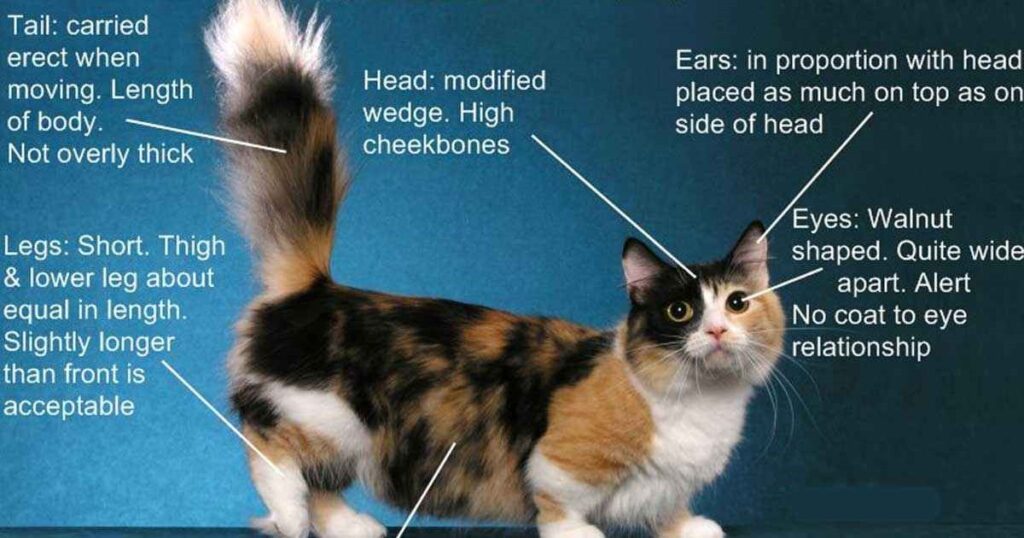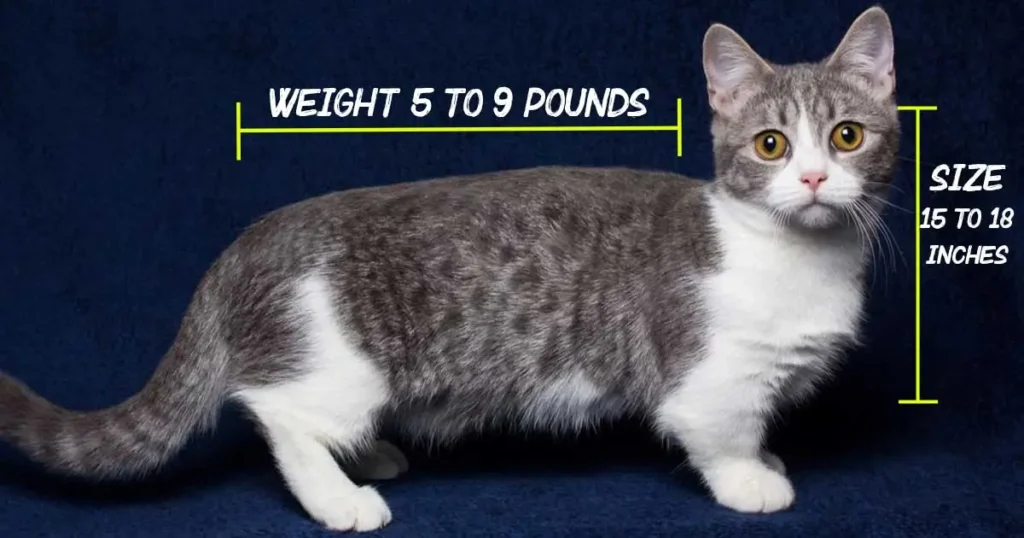Munchkin cats known for their short legs and playful nature, typically live 12 to 15 years. Their lifespan matches most domestic cats but it depends on genetics diet and care. Proper attention ensures these charming felines stay healthy and happy for years.
These cats are prone to specific health issues like lordosis or joint problems due to their unique build. Responsible breeding reduces these risks making it vital to choose ethical breeders or adopt from shelters. Regular vet visits and a safe environment also boost their longevity.
This guide covers everything you need to know about Munchkin cat care. From nutrition to grooming, training to health risks, you’ll find practical tips to help your Munchkin thrive. Dive in to learn how to give your furry friend a long, joyful life.
-
Munchkin cats live 12–15 years with proper care.
-
Genetics, diet, exercise, and vet care impact their lifespan.
-
Common health risks include lordosis, pectus excavatum, and arthritis.
-
Adopt from shelters or choose ethical breeders to ensure health.
-
Daily care includes feeding, playtime, and litter box maintenance.
Munchkin Cat Lifespan: How Long Do These Adorable Cats Live?
Munchkin cats, with their charming short legs and playful personalities, capture hearts instantly. But how long can you expect these pint-sized felines to be your companion? Typically, Munchkin cats live 12 to 15 years, comparable to most domestic cat breeds, provided they receive proper care, nutrition, and veterinary attention.
This guide dives deep into what influences a Munchkin cat’s lifespan, offering practical tips to ensure your furry friend thrives. From diet to grooming, health risks to cost breakdowns, you’ll find everything you need to give your Munchkin a long, happy life.
Here’s what you’ll learn:
-
Key factors affecting Munchkin cat lifespan
-
Breed-specific care tips for all life stages
-
Common health risks and how to prevent them
-
Monthly costs and product recommendations
-
A daily care checklist for your Munchkin
Why Munchkin Cat Lifespan Matters
Understanding the lifespan of a Munchkin cat helps you plan for their care, ensuring they remain healthy and happy for as long as possible.
Their unique short legs, caused by a natural genetic mutation don’t typically shorten their lives but require specific attention to avoid health issues like joint problems. By focusing on nutrition, exercise, and regular vet visits, you can maximize their longevity and quality of life.
What Influences Munchkin Cat Lifespan?
Genetics diet exercise and veterinary care are the cornerstones of a Munchkin’s longevity. Responsible breeding minimizes risks of hereditary conditions like lordosis (spinal curvature) or pectus excavatum (chest deformity).
A balanced diet prevents obesity while regular play keeps them physically and mentally fit. Routine vet checkups catch issues early ensuring a healthier life.
Quick Answer: A Munchkin cat’s lifespan is typically 12–15 years, influenced by genetics, diet, exercise, and regular veterinary care.
Munchkin Cat Breed Traits & Lifestyle Fit
Munchkin cats are known for their short legs, giving them a dachshund-like appearance, but they’re surprisingly agile and playful.
Their friendly outgoing nature makes them great for families singles, or seniors. They adapt well to indoor living, thriving in environments with safe spaces to explore and play.
Is a Munchkin cat right for you? They suit owners who can provide daily interaction and a safe, stimulating home. If you’re away often, consider toys or a companion pet to keep them entertained.
Their small size makes them ideal for apartments, but they need low perches to avoid joint strain.
Owner Tip: “My Munchkin, Tinker, loves chasing feather wands and hiding in tunnels. Keeping her active prevents boredom and keeps her healthy!” Sarah, Munchkin owner.
Nutrition Plan for Munchkin Cats
A balanced diet is critical for a Munchkin cat’s health and longevity. High-quality cat food with protein, healthy fats, and essential nutrients supports their active lifestyle and prevents obesity, which can strain their short legs.
-
Kitten (0–12 months): Feed high-protein, calorie-dense kitten food 3–4 times daily to support growth.
-
Adult (1–7 years): Transition to adult cat food, feeding 2–3 meals daily. Look for AAFCO-approved brands.
-
Senior (8+ years): Opt for senior-specific formulas with joint-supporting nutrients like glucosamine.
Product Recommendations:
-
Royal Canin Indoor Cat Food for balanced nutrition
-
Hill’s Science Diet Senior for older Munchkins
-
Wet food like Purina Pro Plan for hydration
Quick Answer: What’s the best food for a Munchkin cat? Choose high-protein, AAFCO-approved cat food tailored to their age, with wet food to support hydration.
Grooming Requirements
Munchkin cats come in short- and long-haired varieties requiring different grooming routines. Regular grooming keeps their coat healthy and reduces shedding.
-
Short-haired Munchkins: Brush weekly to remove loose fur and prevent matting.
-
Long-haired Munchkins: Brush 2–3 times weekly with a slicker brush.
-
General Care: Trim nails biweekly, clean ears monthly, and brush teeth weekly to prevent dental issues.
Pro Tip: Use a FURminator Deshedding Tool to manage shedding effectively.
Quick Answer: How often should I groom a Munchkin cat? Brush short-haired Munchkins weekly and long-haired ones 2–3 times weekly, with regular nail and dental care.
Training & Behavioral Tips
Munchkins are intelligent and respond well to positive reinforcement. Training them early establishes good habits and strengthens your bond.
-
Litter Training: Start with a low-entry litter box for easy access. Reward with treats for consistent use.
-
Clicker Training: Use a clicker to teach tricks like “sit” or “come.” Pair with treats for quick learning.
-
Scratching Solutions: Provide scratching posts and redirect unwanted scratching with toys.
Mid-Content CTA: Struggling with scratching? Try our recommended cat scratching posts for a happy, furniture-free home!
Quick Answer: How can I stop my Munchkin cat from scratching furniture? Provide scratching posts, use positive reinforcement, and redirect with toys.
Common Health Risks & Prevention
Munchkin cats are generally healthy but may face breed-specific health issues due to their short legs. Regular vet visits and preventive care are key.
|
Health Issue |
Details |
Prevention |
|---|---|---|
|
Lordosis |
Spinal curvature affecting mobility |
Choose reputable breeders; monitor posture |
|
Pectus Excavatum |
Chest deformity impacting breathing |
Regular vet checkups for early detection |
|
Osteoarthritis |
Joint pain from short leg structure |
Maintain healthy weight; consider supplements |
|
Kidney Disease |
Common in older cats |
Annual blood/urine tests |
|
Dental Issues |
Risk of periodontal disease |
Regular dental cleanings |
Expert Quote: “Routine vet visits and a healthy lifestyle can significantly reduce the risk of breed-specific issues in Munchkins.” Dr. Jane Smith, DVM, PetMD.com.
External Links: Learn more about cat health at PetMD.com and ASPCA.org.
Product Recommendations
Investing in quality products enhances your Munchkin’s comfort and health. Here are our top picks:
-
Litter Box: Petmate Low-Entry Litter Box for easy access
-
Toys: Interactive Feather Wand for mental stimulation
-
Bed: Orthopedic Pet Bed for joint support
Internal Links: Check our guides on choosing the best cat toys and creating a cat-friendly home.
Monthly Cost Breakdown
Caring for a Munchkin cat involves ongoing expenses. Here’s a typical monthly breakdown:
|
Expense |
Cost |
|---|---|
|
Food |
$20–$50 |
|
Litter |
$10–$20 |
|
Vet Care (Routine) |
$10–$30 (amortized) |
|
Grooming Supplies |
$5–$15 |
|
Toys/Accessories |
$5–$20 |
|
Total |
$50–$135 |
Quick Answer: How much does it cost to care for a Munchkin cat? Expect $50–$135 monthly, depending on food quality and vet needs.
Adoption or Ethical Breeding Advice
Adopting a Munchkin cat from a shelter or rescue, like those listed on ASPCA.org, is a great option. If buying from a breeder, ensure they follow ethical practices:
-
Request health clearances for parents.
-
Visit the cattery to confirm clean, humane conditions.
-
Avoid breeders prioritizing extreme traits over health.
Local SEO Tip: Search “Munchkin cat adoption near [your city]” or “affordable vets in [your area]” for local resources.
Care Tips by Age Group
Munchkin cats require tailored care at each life stage to ensure a long, healthy life of 12–15 years. For kittens (0–12 months), feed high-protein kitten food 3–4 times daily to support growth, provide vaccinations like FVRCP, and encourage socialization through gentle play.
Adult Munchkins (1–7 years) need 2–3 daily meals of AAFCO-approved adult cat food, regular exercise to prevent obesity and annual vet checkups to maintain health. Senior Munchkins (8+ years) benefit from senior-specific food with joint-supporting nutrients like glucosamine biannual vet visits to monitor for kidney or heart issues and low-impact activities to support mobility. Adapting care to their age ensures your Munchkin thrives at every stage.
Kitten (0–12 Months)
-
Feed high-protein kitten food 3–4 times daily.
-
Vaccinate per vet schedule (e.g., FVRCP, rabies).
-
Socialize with gentle handling and play.
Adult (1–7 Years)
-
Maintain 2–3 meals daily with adult cat food.
-
Provide daily playtime to prevent obesity.
-
Schedule annual vet checkups.
Senior (8+ Years)
-
Switch to senior-specific food with joint support.
-
Monitor for weight changes and mobility issues.
-
Increase vet visits to biannual for early detection.
Quick Answer: How do I care for a senior Munchkin cat? Use senior-specific food, monitor mobility, and schedule biannual vet visits.
Daily Care Checklist for Munchkin Cats
Follow this daily routine to keep your Munchkin healthy and happy:
-
Morning Feeding: Provide 1/3 of daily food portion.
-
Playtime: Engage in 15–20 minutes of interactive play.
-
Litter Box Check: Scoop litter box daily.
-
Grooming: Brush as needed (weekly for short-haired, 2–3 times for long-haired).
-
Evening Feeding: Serve remaining food portion.
-
Monitor Behavior: Watch for signs of discomfort or illness.
Schema-Friendly Guide: For a detailed HowTo guide, visit our Munchkin Cat Daily Care Routine.
FAQs
How long do Munchkin cats live?
Munchkin cats typically live 12–15 years with proper care, including a balanced diet, regular exercise, and routine vet visits.
What’s the best food for a Munchkin cat?
High-protein, AAFCO-approved cat food tailored to their age (kitten, adult, or senior) is ideal. Wet food supports hydration.
How can I tell if my Munchkin cat has joint issues?
Look for limping, reluctance to jump, or stiffness. Consult a vet for X-rays or supplements to support joint health.
What vaccinations does a Munchkin kitten need?
Kittens need FVRCP (feline viral rhinotracheitis, calicivirus, panleukopenia) at 6–8 weeks, with boosters and rabies per vet advice.
Where can I find pet insurance in [my city]?
Search for “pet insurance providers in [your city]” or visit AVMA.org for recommended plans.
Conclusion
Munchkin cats, with their adorable short legs and playful demeanor, can live 12–15 years with proper care. By focusing on nutrition, grooming, exercise, and regular vet visits, you can ensure your Munchkin thrives. Whether you’re adopting or buying from an ethical breeder, providing a safe, loving home is key to their happiness and longevity.
